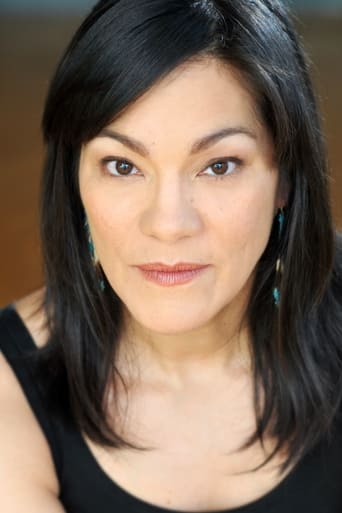Taraparain
Tells a fascinating and unsettling true story, and does so well, without pretending to have all the answers.
BigLaxFan94
As with any Native film out there, I liked this one. Viewers have to feel for the main character who probably had a really hard childhood since he was taken away from his family at the tender age of 3! That alone would make anyone angry, especially for Native kids since many of them were stripped away from their families at such young ages too when they were forced to attend those damned residential schools! Then when he finally goes home to his roots, things don't get any better since he only finds his family in more predicaments. The guy is so confused that he doesn't know what to do! This really is a sad story, especially towards the end when the protagonist discovers that someone killed his father! Talk about trauma! To not even know who one's own family is through childhood before seeking out who their family as an adult, only to find out that their father has been murdered! No one could ever survive that! Anyways, this is still a good film which is why it deserves a 7.
roskvo
This beautiful film, sometimes comparable in style to Weerasethakul's "Uncle Boonmee" (2010) and Terence Malick's "The New World" (2005), is focused around a young French speaking indigenous man from Montreal who plays the role of Hamlet in a reinvented version of Shakespeare's play set in his family's hometown, which seems to be an Iroquian Huron logging town (only local Quebecois might recognise the dialect spoken such is its rarity now - the lead character did not understand it either). The landscape and mythology reminded me of a book I read about the Algonquian Mi'kmaq people, so I'm guessing there is some common mythology shared between different tribes. The director Durand is an experienced and intelligent theater director who has only recently moved into feature films. He is himself from the same ethnic group and has spent many years trying to promote indigenous Quebec culture, while also exploring various great playwrights' work. The film is set in the present day and explores present day themes concerning sex, drugs, gangs, parenthood in crisis, broken families, adoption, loss of identity and unrelenting corporatism/corruption. The erotic scenes have a sensuality and charge to them which can be good or disturbing, depending on who's involved in them - think of Hamlet's oedipal psychology for instance. It seems very different to other modern films which address these issues though because it deliberately places them in the context of a Shakespearean dramatic/philosophical structure and the rich imagery of indigenous mythology, in particular the Mesnak - sometimes taken as a symbol of pre-colonial north-America, but here the ancestral turtle spirit, which carries the memories and pain of the dead until justice is served. You could say the Mesnak is playing a similar role to the faun in Guillermo Del Toro's 'Pan's Labyrinth', but in the symbolic naturalistic style of 'Le quattro volte' (2010). You will probably never have seen a Shakespeare adaptation like it, because it addresses the emotional and psychological aspects of that story head on, rather than fetishising the use of language and rigid structure. It often uses modern scenarios and filmic influences, such as an estranged and naive member of a family returning to his ancestral home, to recreate the dynamic that Shakespeare was trying to generate in his setting. There is exactly that subtle air of dread hanging over parts of the film, that you would expect from a Hamlet interpretation. Unlike most classically stylised thespian films, the relationships are all very well drawn and realistic, while allowing occasional surreal flourishes and memories influenced by local myth. The actors are professional and amateur, all performing excellently. Durand has exposed himself to critical snobbery by alluding to such a revered tradition in theatre and this makes the film difficult to categorise and therefore sell. If for no other reason, you should watch this film to appreciate the natural history of Canada and how people feel about their environment - the choice of shots and colours are all deliberately selected to enhance the beauty of people in nature.The powerful connection between landscape and spirit contrasts starkly with the attitude of industrialists who attempt to barter with and bribe the tribal owners of the land, as if the forests and rivers were nothing but another commodity and tribal elders are CEO's. The social agenda of the film could be compared to films like 'Local Hero' by Bill Forsyth, 'The Last Wave' by Peter Weir or 'Samson and Delilah' by Warwick Thornton. The final sequence is one of the most beautiful and melancholy I have seen in any film and I'm not sure how they actually managed to film it safely.Mesnak is the ghost of Canada's conscience and I believe that the art establishment's rejection of it, is exactly what we should expect for a work of truth in a complacent culture.



